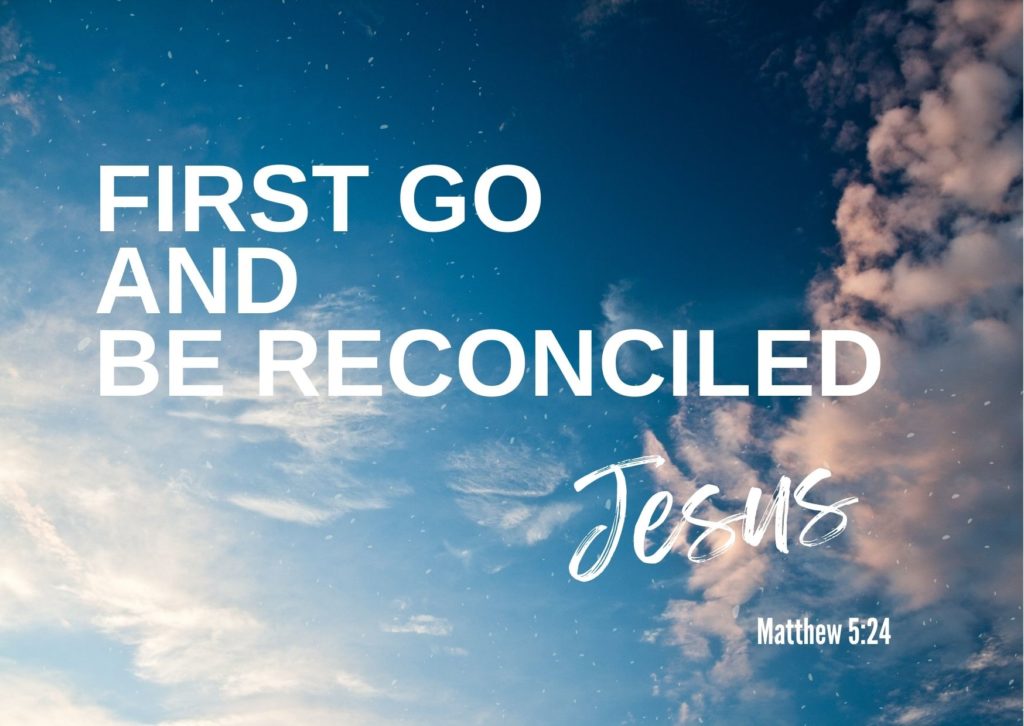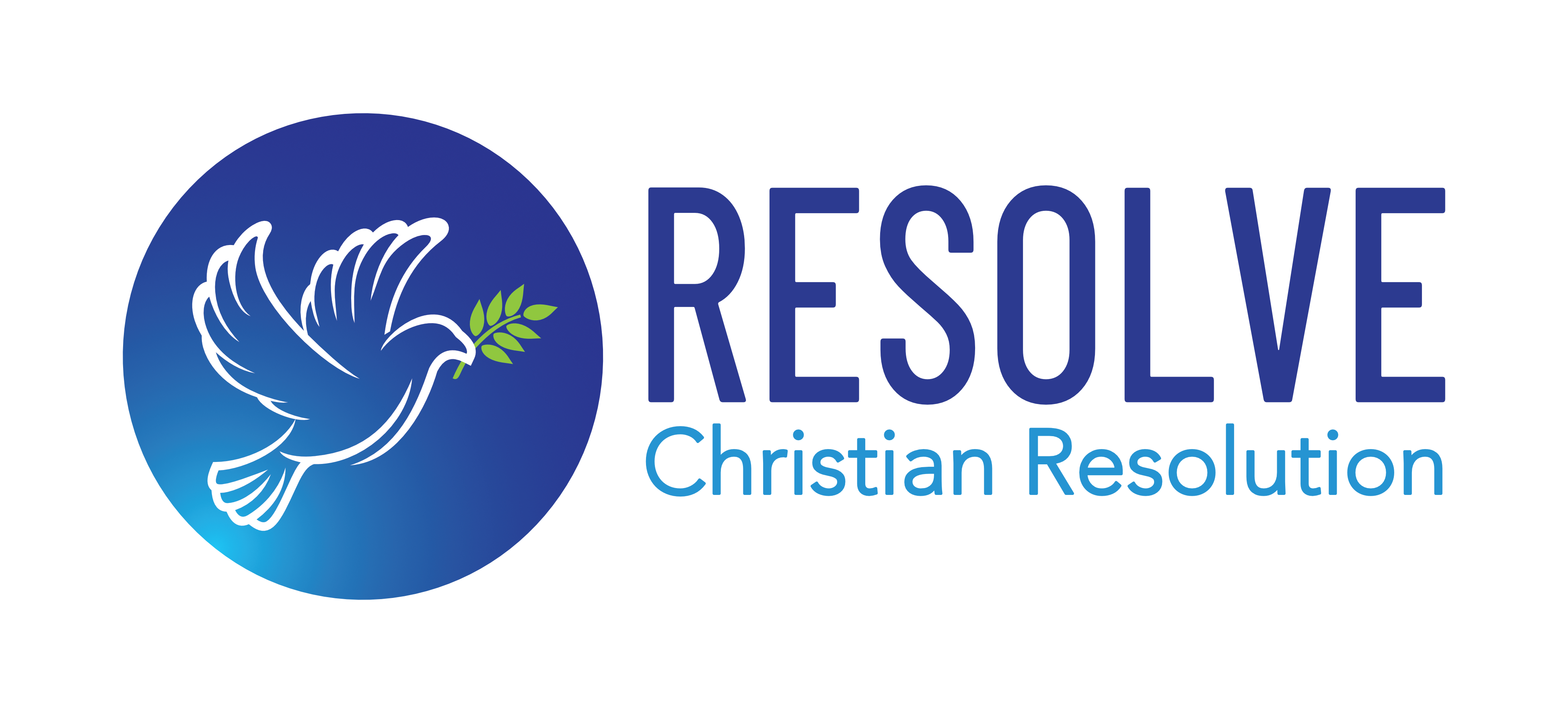The following article was first posted on Andrew Wilks’ Be Reconciled website.
My work these days includes dispute resolution, training in managing conflict, using the Bible as a guide. It is reconciliation work (see our web site Resolve-Christian Resolution). I believe that God is for reconciliation between people, even more than resolving disputes or conflicts over material matters.
In the secular world
Through my experience of secular legal and mediation work, disputes get resolved through one of three ways: negotiation, mediation or or a formal process of arbitration or court proceedings. In the case or negotiation or mediation, any resolution is based on agreement reached between the parties. It usually requires compromise. With arbitration or court, it is an imposed solution through an award or court order, usually delivering a win/lose outcome.
But normally none of those three ways actually needs reconciliation to be part of the resolution of the dispute. The parties will usually go away with whatever result they managed to achieve. Often no-one is 100 percent happy.
And usually the underlying relational factors that got the parties into the dispute in the first place are not addressed.
Why bother to reconcile?
The answer is simple. For Christians, reconciliation is at the very core of the Gospel, the Good News message that Jesus proclaimed.
The Gospel message has two key dimensions to it. First, the vertical relationship between us and God is put right because God sent his Son Jesus into the world to reconcile people back to himself. It is a free gift. We just have to receive it.
The second dimension is among people who have accepted God’s free gift – the horizontal dimension. Jesus has a high expectation of relationships among his followers. He commands us to “love one another” as he has loved us (John 13:34). He says that this quality of relationship is key to the effectiveness of our Christian witness (verse 35).
In the Sermon on the Mount (Matthew 5-7 and Luke 6:17-49), Jesus gives clear instructions as to the conduct expected of his followers when relationships become difficult or challenging. Some relevant examples from Matthew’s Gospel:
- Don’t seek to take revenge when wronged (5:38-40).
- Love your enemies (5:43-46).
- Go and be reconciled with your adversary before you worship (5:23-26).
- Put God, not material things, first in your life (6:19-24).
- Don’t judge others but sort yourself out first (7:1-5).
So what does reconciliation look like?
Reconciliation entails much more than the resolution of a dispute or argument. Reconciliation is something that comes from the heart, not just from cooperating with a dispute resolution process or from agreeing to a compromise. Reconciliation is about restoring relationships, which may mean addressing the causes of a broken relationship.
Reconciliation requires the parties to move towards each other. It may require one or more parties to take account of wrong attitudes, words or behaviour, acknowledge their fault and seek forgiveness of the other.
Reconciliation involves valuing the restoration of relationship above any material gain or proving oneself to be right or some other “win”. It may need someone to step back from insisting on a legitimate right or remedy.
Three positive results
- Peace follows reconciliation. There may be more work to do as new challenges come up. A process of putting right longstanding wrongs may need to follow, but the groundwork for better relating and understanding will have been done. It’s like the clearing of a debris-jammed stream so that it can flow again.
- With every dispute or unreconciled conflict, people other than the parties themselves are inevitably affected. Families, close friends, church friends, work colleagues, business associates. A reconciliation will usually clear the atmosphere. Those closest to the parties may feel a sense of relief. And our relationships within Christian community can change for the better.
- We weren’t designed to live in continual conflict. With reconciliation, we regain a sense of peace lost through the conflict – peace in our own relationship to God and within our ourselves.
Jesus urges us to be reconciled
That his followers have right relationships between themselves is vitally important to Jesus. He commands “Go and be reconciled”, where we have offended someone or owe them money and have not paid it back. He says that reconciliation is so important to him, and therefore God the Father, that our acts of worship must wait until after we have cleared up the matter! It is a command, not a suggestion.
In a nutshell
Reconciliation is more than just a legal resolution of a conflict. It is about restoring relationships. It is very important to God and to our lives as followers of Jesus. It is a reflection of what God has done for us. And it is the only way back to peace with God, with one another, and within our own hearts. All of this is key to our witness in the world.
Peace be with you
Andrew


Recent Comments